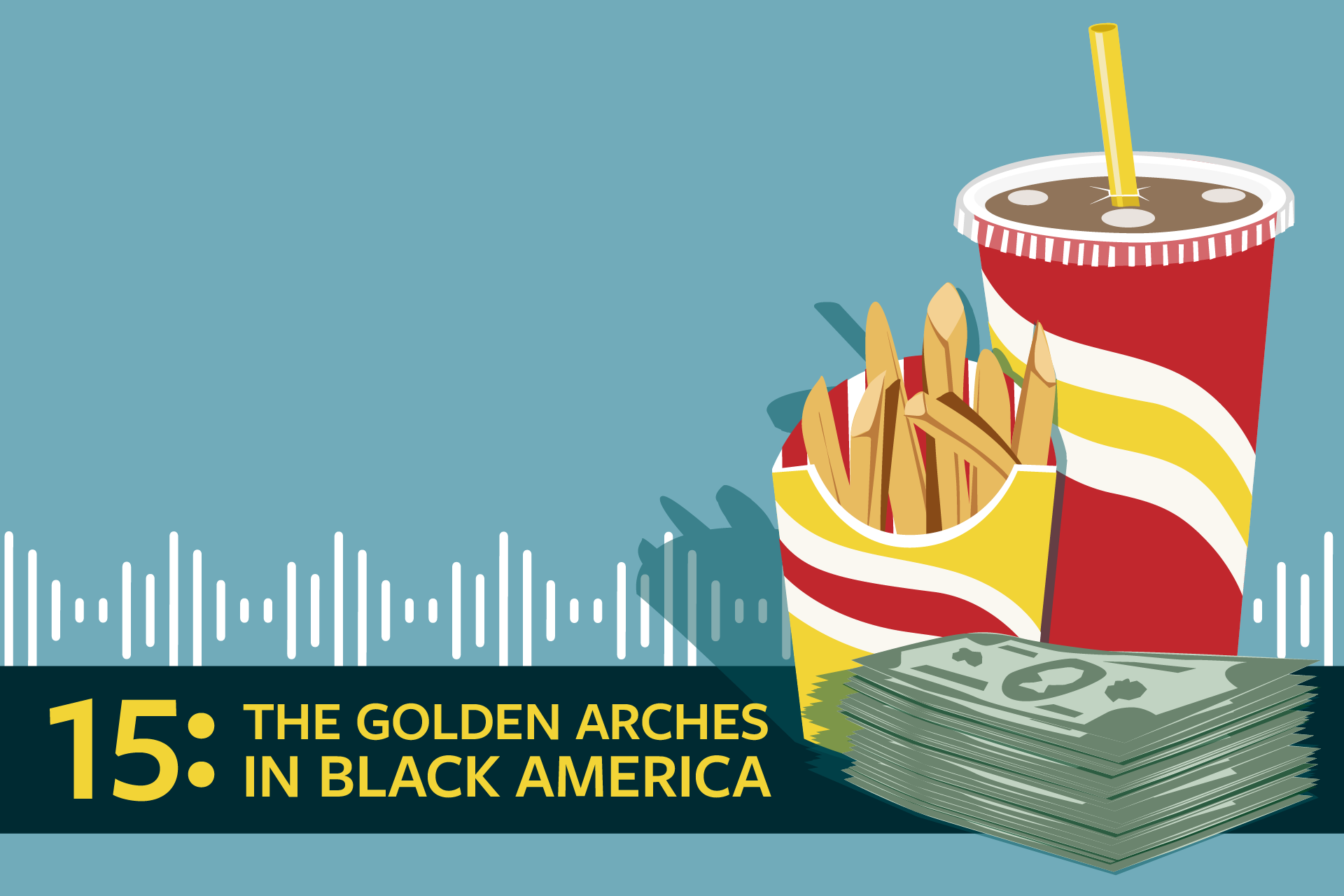McDonald’s and Black America
For those interested in a more sustainable food system, fast food has long been a bogeyman, thanks to its reliance on industrial food production and its negative impacts on human health — and for how it has created a template for American eating that is then reflected back to us everywhere, from restaurants to homes to school cafeterias.
Fast food has shaped this country in so many ways. As Eric Schlosser deftly laid out in his 2001 book “Fast Food Nation,” the fast food industry “helped transform not only the American diet, but also our landscape, economy, workforce and popular culture” — and not for the better, most would agree. Schlosser described fast food’s ubiquity as “so commonplace that it has acquired an air of inevitability, as though it were somehow unavoidable, a fact of modern life.”
But the fast food industry worked very smartly to make it so. And as historian Dr. Marcia Chatelain explains in the most recent episode of our podcast, “What You’re Eating, “there was nothing inevitable about our relationship to any marketplace. It has to be massaged and nurtured and manipulated.” Fast food companies like McDonald’s have been nurturing and manipulating that relationship very intentionally, and focusing especially on certain audiences. So, while it’s true that fast food is everywhere, it is even more prevalent in predominantly non-white communities, where fast food restaurants abound and are sometimes the only dining option. The resulting relationship between those fast food restaurants and the Black community is complex, and as Dr. Chatelain details in her Pulitzer Prize-winning 2020 book, “Franchise: The Golden Arches in Black America,” there are specific historical reasons for this.
We talked to Dr. Chatelain about that history, its intertwinings with the Civil Rights movement, and how, for the Black community, “fast food restaurants could symbolize economic possibility or structural perniciousness and bigotry.” The “opportunity” at hand was the economic possibility presented by fast food companies (most often McDonald’s) opening up their franchises to Black ownership at a time when business opportunities for the Black community were few and far between. As Chatelain explains in her book and in the episode, however, that success had hard limits within the company’s corporate structure, and the expansion of the franchises within communities of color staked the financial gains of franchise ownership starkly against job opportunities, wage growth and health within the wider community.
As we turn our critical lens on the fast food industry, it is important to look further than the usual complaints about the industry’s environmental footprint and nutritional impact. As Chatelain says in her book, “fast food is about more than just food,” and considering that there are “multiple meanings of place and space,” untangling the complex relationship between fast food chains and the people who work, eat and gather there requires a careful look at the intertwined histories of foodways, race and power in the United States.
Get the Latest News, from FoodPrint.
By subscribing to communications from FoodPrint, you are agreeing to receive emails from us. We promise not to email you too often or sell your information.
Top photo from John Margolies Roadside America photograph archive (1972-2008), Library of Congress, Prints and Photographs Division.
More Reading
Plastics are everywhere in agriculture. Why researchers are worried.
January 22, 2026
Forget the dietary guidelines — Marion Nestle will help you figure out what to eat
January 12, 2026
What to make of the new dietary guidelines
January 9, 2026
MAHA wants to reform food, health and scientific systems — why is it ignoring nitrates?
December 18, 2025
Can legal challenges against ultraprocessed foods get us to take them seriously?
December 11, 2025
Can MAHA succeed at making America healthy again?
November 19, 2025
How urban orchards improve a community's access to fresh, healthy food
October 30, 2025
School meals are about to get a lot less local — and less healthy
October 22, 2025
The meat industry smeared the Planetary Health Diet. Now its creators are back with more evidence.
October 10, 2025
How to avoid eating microplastics and chemicals in plastic
September 25, 2025

